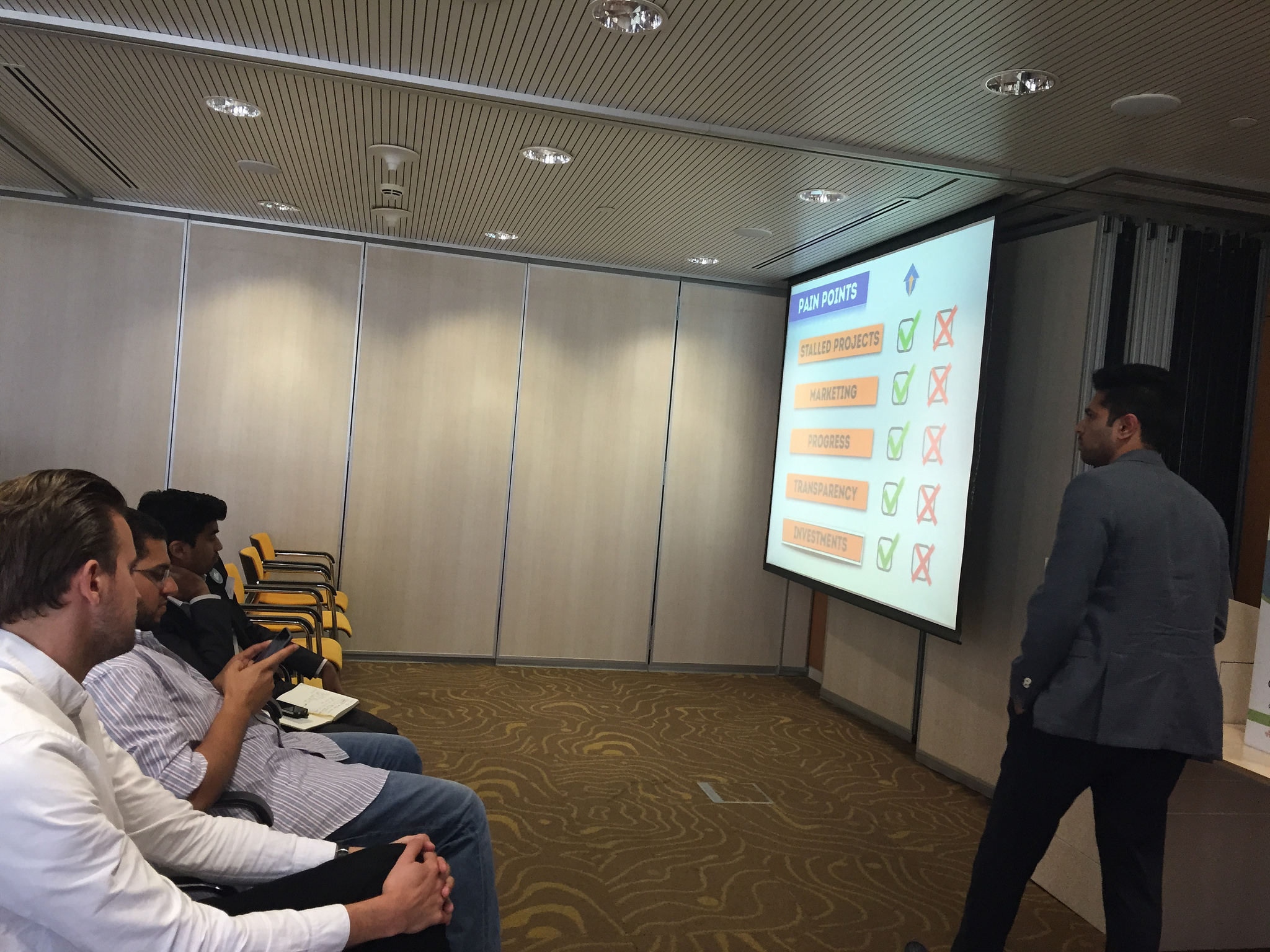A bank that is quick and easy for customers on the smartphone and does good with sustainable investments – that is the claim of Tomorrow. At our SXSW pitch, the Hamburg fintech startup was able to win over the audience and will soon be traveling with us to the South by Southwest Festival in Texas. Today we introduce Tomorrow in more detail.
“Bad Banks” is the name of an award-winning German television series. Even the name plays with the stereotype that banks are somehow “evil” and profit always goes before morality in the financial industry. Whether that is so general is the truth, is an open question, but with a bad image, the banking industry has to fight since the financial crisis of 2007 at the latest. The need for a “good bank” should be so great.
Founding one in search of the right bank
At any rate, Inas Nureldin’s thoughts were that of how he could invest his money without a guilty conscience. Inas has studied Business Informatics and Economics and already has some entrepreneurial experience. So he once won an Egyptian business plan competition and met in this context also Husni Mubarak, the then President of Egypt.
As co-founder of Muddy Boots Software, he provided food chain transparency for nearly a decade (a word only available in the German language). At some point, the associated travel was too much for him, especially since he had just become the father of a daughter. So he looked for a new field of activity and came up with the idea of founding a bank on his own in search of sustainable investment products: Tomorrow.
He found his co-founders over the circle of friends. The cultural scientist Jakob Berndt had already made a name for himself as a social entrepreneur with Lemonaid Beverages GmbH, which was launched in 2009. The brands Lemonaid and ChariTea are known nationwide and beyond, and in 2016 the German Founders’ Prize was awarded. Jakob, a father of three, retired from the company in 2017 and initially wanted to take a little break, but was quickly convinced by Inas’s idea.
Three founders with sustainable experience
Just like Michael Schweikart, the third from the founding trio. He has worked as an advisor to companies on financial issues and for two startups, namely InStaff and jobs4refugees. At Tomorrow, he also focuses on finances, Inas focuses on product development, and Jakob is primarily responsible for marketing and communications. In autumn 2017 they made the decision to turn the idea into a real business.
Right at the beginning was the plan to offer a sustainable investment product. It quickly became clear how complex the topic and how narrow the market is for it. So why not start better with a financial product that everyone needs: the checking account. But there are plenty of them, as well as a number of banks that have dedicated themselves to sustainability. But Tomorrow combines the social component with the simple and contemporary handling of a mobile bank designed for use with a smartphone, such as the N26. Thus, the fintech startup has apparently hit a nerve.
Demand from the beginning
When Tomorrow searched for test customers in the summer of 2018 via social media, 150 applicants had already registered after 20 minutes. In total, 300 people put the checking account to the test, with their real money and real transactions. Everything went smoothly except for minor inconsistencies. Above all, the user-friendliness was optimized, whereby the constructive feedback of the users was a big help. For example, the app now offers a digital budget booklet that categorizes the various issues. What is currently missing, is the Dispo, but still comes. The official launch of the checking account was in November 2018. Who wants to sign up, is currently still on a waiting list, which is processed quickly, so do not be put off. Soon this will be superfluous anyway.
But what is sustainable about Tomorrow? You have to know that all banks are working with the money that ends up on current accounts, so invest it. Tomorrow uses these customer deposits to invest, for example, in solar energy or microcredit organizations and of course not in the defense industry. These are explicitly investments, not donations, after all, a sustainable bank also wants and must make a profit for the benefit of its customers.
The Tomorrow app shows where the money goes
The Tomorrow credit card has a kind of donation function for this. For every payment process, a certain amount goes to the bank. Tomorrow does not cover this amount on his own account, but passes it on directly to a rainforest project in Brazil. Account owners can even track how many trees have been planted thanks to their purchases through the app. A few more facts and figures about Tomorrow: Up to three withdrawals at current ATMs are free, as well as the basic account. For the premium account, the monthly fee is ten euros. Deposits are protected up to 100,000 euros.
While the software for the practical application comes completely from the house of Tomorrow, the bank-licensed partner solarisBank ensures that the startup can act like any other bank. Although the team now consists of 15 people, a separate banking license, as competitor N26 now has still associated with too much effort. More important is the further expansion of the service offering around the account and the development of own investment products, as originally planned.

